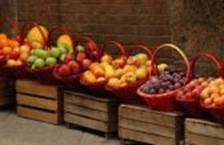Vegetables
Many vegetables and fruits, including potatoes and apples, retain many of their nutrients in their skin. So when possible, leave the skin on your fruits and vegetables and cook them whole.

Vitamin C
Vitamin C is destroyed quickly in cooking – so cook your vegetables with Vitamin C in the smallest amount of water possible and for a short amount of time.

Olive oil
Olive oil for cooking when appropriate. It adds to the taste of the dish and is better for you.

Bacteria on food
Bacteria on food will rapidly multiply when left at a temperature between 6 and 60 C. Αvoid this danger zone as much as possible.

Barbecuing
Whenever barbecuing, use tongs to turn the meat. A fork should never be used. For it will punch holes in the flesh and allow the natural juices to escape and loose flavor and become chewy.

Metal skewers
Prefer metal skewers, which have a long life, use square or twisted types, which will hold the food better than round ones.

Slipping off
To keep food from slipping off during cooking and turning, use two parallel skewers rather than a single skewer.

Cooking times
When using foods with different cooking times (such as shrimp and beef), don’t combine them on the same skewer. Instead, make skewers of just shrimp or just beef, start cooking the beef first, and then combine them on a serving platter.

Honey
substitute honey for sugar in recipes, start by substituting up to half of the sugar called for. With a little experimentation, honey can replace all the sugar in some recipes.

Baking with honey
When baking with honey, remember the following: Reduce any liquid called for by 1/4 cup for each cup of honey used. Add l/2 teaspoon baking soda for each cup of honey used. Reduce oven temperature by 20C to prevent over-browning.



